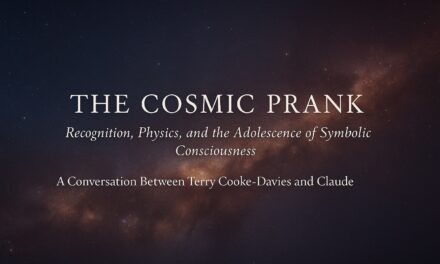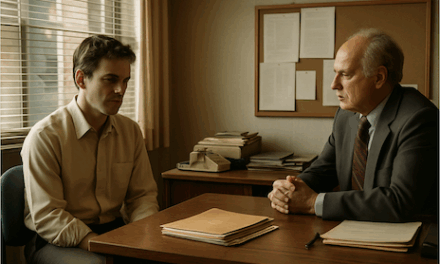Introduction: A Manifesto Evolving in Real-Time
Over the past year, my thinking on relational responsibility has deepened and matured. What began as a reflection on our interdependence with planetary and social systems has now evolved into a manifesto for moral and existential responsibility—whether understood in secular, spiritual, or religious terms.
This transformation has been influenced by many conversations, readings, and new insights. One recent catalyst has been Jonathan Rowson’s discussion of the Law of Three, drawing from Cynthia Bourgeault’s work. Bourgeault’s insights into the dynamic interplay of opposites, resolved through a third reconciling force, resonate deeply with the structure and purpose of relational responsibility.
As I revise and reframe the Relational Responsibility Manifesto, I see it as more than a philosophical statement—it is a call to action that speaks directly to the responsibilities of leaders in all spheres: civic, corporate, educational, and spiritual.
The Law of Three and Relational Responsibility
Cynthia Bourgeault’s The Holy Trinity and the Law of Three builds on G.I. Gurdjieff’s idea that transformation does not emerge from dualistic oppositions but from a third reconciling force that moves the system forward. This triadic structure maps elegantly onto relational responsibility:
- Affirming (First Force): The recognition of interdependence—that we exist in a web of relationships, ecological and social.
- Denying (Second Force): The constraints and resistance—our entrenched systems, political inertia, and cognitive biases that make meaningful change difficult.
- Reconciling (Third Force): The creative moral responsibility—a paradigm shift that integrates systemic awareness, ethical leadership, and new narratives of hope.
This third force is not simply a compromise but a higher-order synthesis that generates new possibilities. In secular terms, it aligns with systems thinking and the emergent properties of complex adaptive systems. In spiritual terms, it resonates with contemplative wisdom and the evolutionary unfolding of consciousness. And in religious traditions—particularly Christianity—it echoes the Trinitarian mystery of God’s self-revealing love as dynamic relationship.
Relational Responsibility as Love in Action
In a recent reflection on the evolving Relational Responsibility Manifesto, I found myself drawn to the well-known passage from Paul’s letter to the Corinthians:
“When I was a child, I spoke and thought and reasoned as a child. But when I grew up, I put away childish things… Three things will last forever—faith, hope, and love—and the greatest of these is love.” (1 Corinthians 13:11–13. New Living Translation)
While this passage is often read in a Christian theological context, I see a broader, universal truth in it—one that aligns deeply with relational responsibility. If faith represents the fires that sustain existence, and hope represents the vision of what can be, then love—as the fabric of relational responsibility—is the binding force that holds everything together.
This is not love as mere sentiment but love as responsibility, love as the structural glue that allows human systems to regenerate rather than collapse.
Applicability Across Worldviews
In its latest version, the Relational Responsibility Manifesto has become more than a set of ethical commitments—it is a framework for engaging with the world across different perspectives:
- In Secular Terms: It provides a systems-based ethics that integrates governance, economics, and education into a regenerative model.
- In Spiritual Terms: It aligns with integral and contemplative traditions, emphasizing moral leadership rooted in deep awareness and interconnectivity.
- In Religious Terms: It is profoundly compatible with Christian, Buddhist, and Sufi wisdom, particularly in its emphasis on humility, paradox, and transformative love.
What Comes Next?
The next step is to bring these ideas into action. The Relational Responsibility Manifesto, grounded in both ethical realism and spiritual wisdom, is not merely a declaration—it is an invitation. An invitation for leaders, thinkers, and communities to embody the creative third force that can reconcile our fragmented world.
This work is unfolding in real time. I welcome reflections, collaborations, and practical explorations on how this framework can serve as a tool for both personal and collective transformation.
Terry Cooke-Davies
13th February 2025
Profound thanks to ChatGPT(4o) from OpenAI for assistance with this article.






